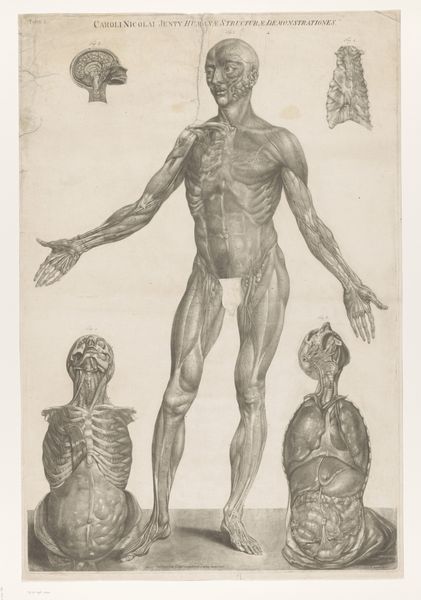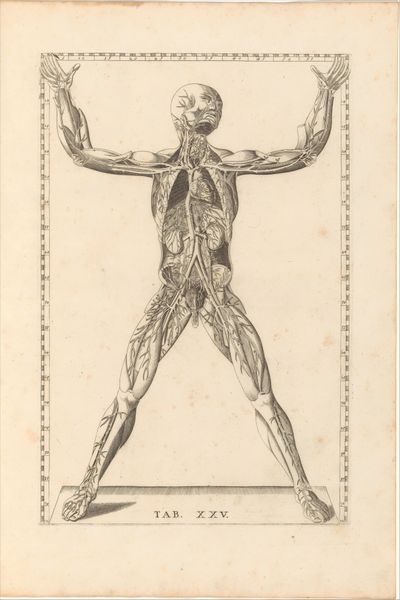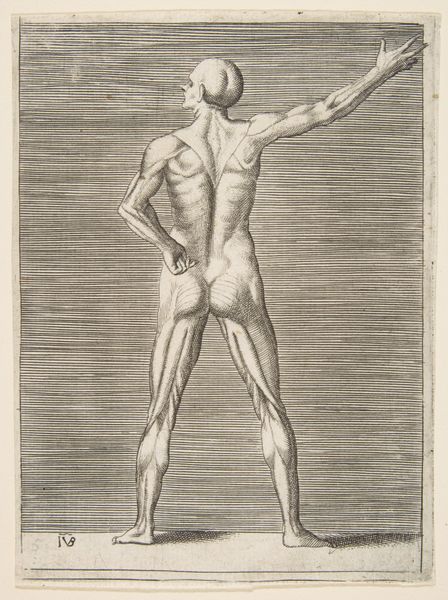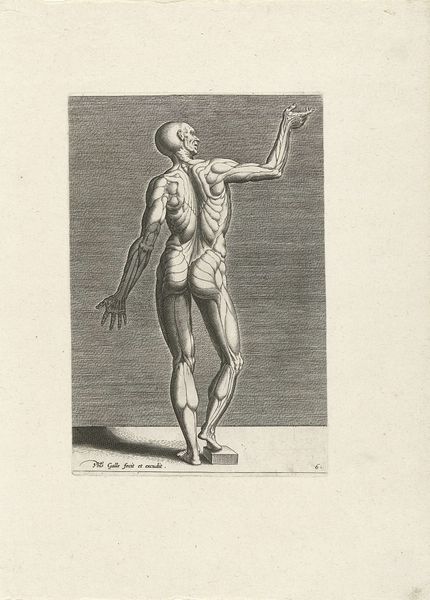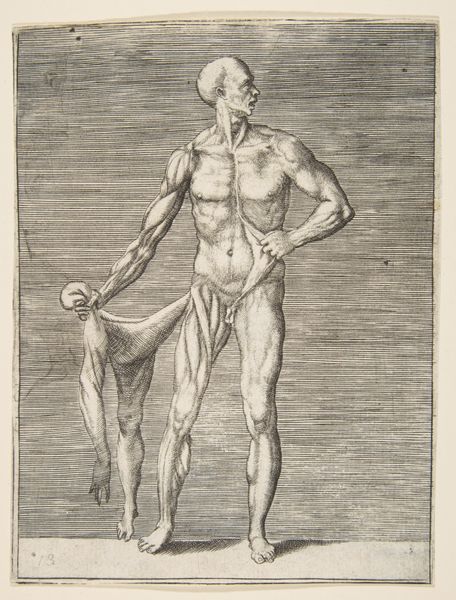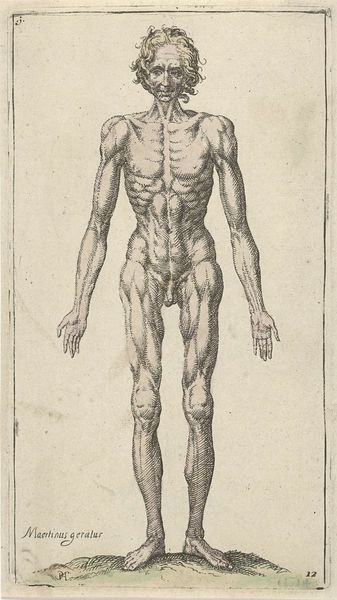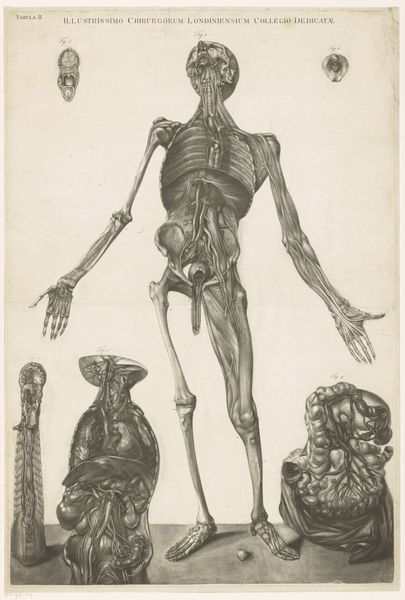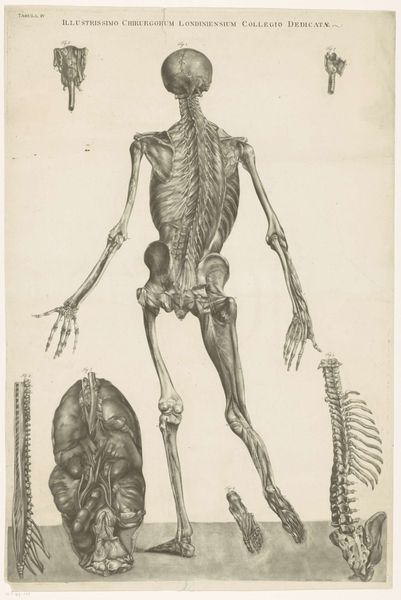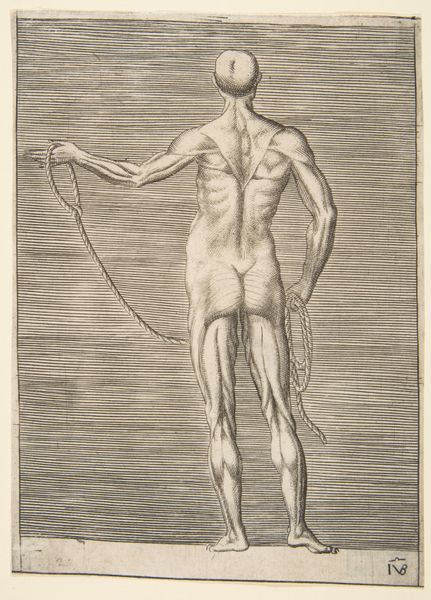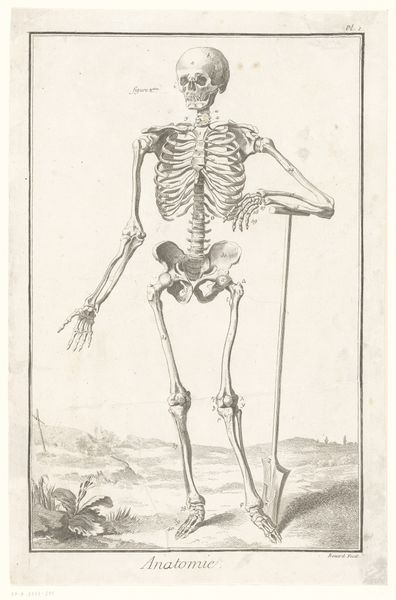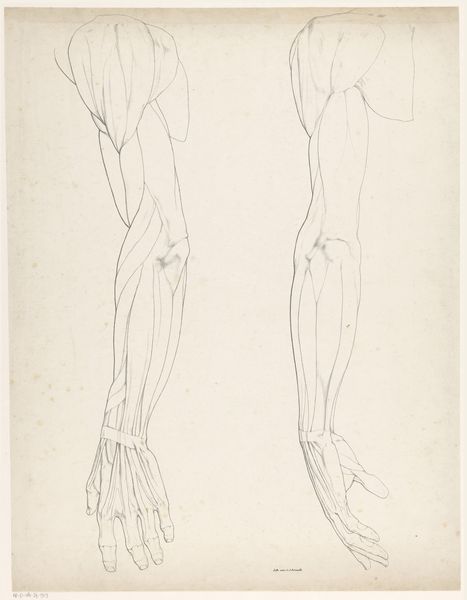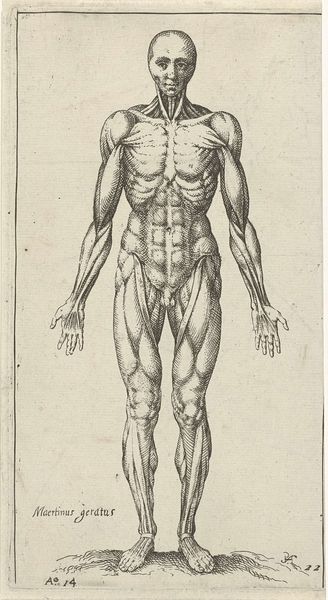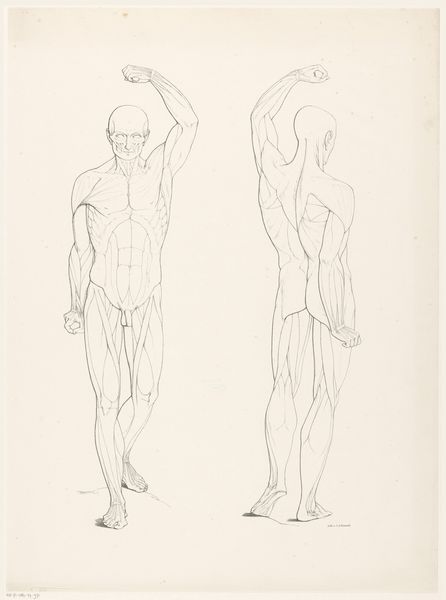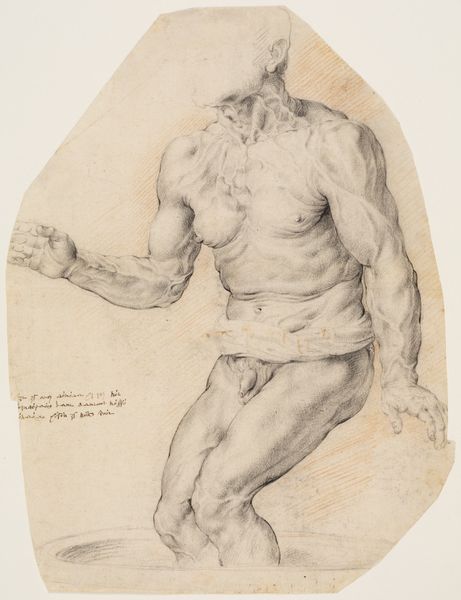
drawing, dry-media, pencil
#
pencil drawn
#
drawing
#
medieval
#
pencil sketch
#
charcoal drawing
#
figuration
#
form
#
11_renaissance
#
dry-media
#
pencil drawing
#
coloured pencil
#
ancient-mediterranean
#
pencil
#
line
#
history-painting
#
academic-art
Dimensions: height 893 mm, width 602 mm
Copyright: Rijks Museum: Open Domain
Editor: So, here we have "Anatomische studie van de achterzijde van het lichaam," a drawing made with pencil by Charles Spooner between 1756 and 1767. What really strikes me is the almost detached clinical quality alongside a stark vulnerability... What do you see when you look at this? Curator: Immediately, I think of memory, Editor. Consider how knowledge of the body, once held sacred, gradually transitioned from symbolic representation to anatomical scrutiny. This isn't merely about the objective structure; it evokes a deep-seated shift in cultural understanding. Look at how the visible musculature contrasts with the dissected forms. What might that juxtaposition suggest to you? Editor: It feels like a breakdown – peeling back layers of meaning. The outer figure has the potential for action, of being alive; the others are static, dead. Curator: Precisely! These layers—muscles, veins, organs—they weren’t simply scientific curiosities; each held symbolic weight within older traditions. This shift towards dissecting and displaying, reflected in the artwork's clinical precision, hints at a cultural transition toward empirical observation, a challenge to established beliefs. Editor: So it's not just science, but the *idea* of scientific progress being presented. The almost aggressive exactness of the pencil line seems to underscore a new authority over understanding the body. Curator: Precisely, the symbolic and emotional impact of those evolving forms carries centuries of cultural memory and re-interpretation within them. It shows us where we came from and, maybe, a little bit about where we're headed. Editor: That's incredible, I'll never see anatomical drawings the same way again! Thank you.
Comments
No comments
Be the first to comment and join the conversation on the ultimate creative platform.
